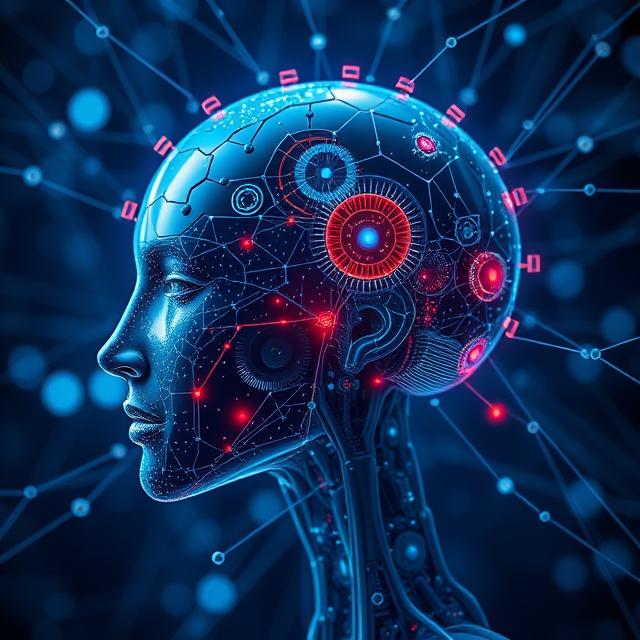Summary:
Artificial intelligence is becoming pervasive in daily life, raising concerns about its impact on human autonomy and skills. While AI offers convenience, it risks making humans overly reliant and complacent, potentially leading to a loss of critical thinking and problem-solving abilities. The parallels to the film WALL-E highlight a future where technology dominates, urging caution about AI's growing influence.
Table of Contents
Artificial intelligence (AI) is seemingly everywhere these days—books, games, movies, and now in our homes, grocery stores, workplaces, and even spacecraft.
Thanks to the internet, AI is rapidly sweeping the world. Some say it’s making humans obsolete, and honestly, I wouldn’t blame them. The companies championing this "revolutionary" technology are, for the most part, the usual suspects—driven by greed and a desire for control, with little regard for what’s best for humanity.
As with everything before it, the masses are eating it up—embracing this hyped-up tech as if it’s the greatest thing since sliced bread. It’s sold as a marketing gimmick, and people buy into it because they’re complacent, lazy, always opting for the easiest route. From where I stand, I’m not a fan of AI. Sure, it could solve some problems and make life easier, but at what cost?
AI Making Humans Lazy
AI has only been around for a few years, and already, people are shirking even the simplest tasks. Why vacuum when a robot can do it? Why proofread when you can just click a button and get a perfectly corrected page? Why drive when you can just push a button and let the car do the work?
Many folks are already asleep at the wheel—moping through life, glued to their devices, barely looking up anymore. Where does it all end? If everyone just relies on programs or robots to do everything, what happens when there’s a power outage? The typical couch potato isn’t going to know how to fix it—they’ve spent their lives pushing buttons and binge-watching, with little thought beyond their next snack.
The core point I’m trying to make: if humans stop actively doing things themselves, they will, over time, forget how to do them—leaving us completely unprepared for real challenges. It might sound exaggerated or hyperbolic, but it’s closer than we think. It’s already happening.
AI Taking Jobs
And let’s not forget the jobs—AI is set to eliminate millions of them, perhaps even more. This isn’t just speculation; recent reports highlight this trend. I don’t understand how so many are okay with going the way of the dinosaurs. Have we really learned nothing from history?
Everything in this world tends to improve over time—except perhaps governments, which seem to get more incompetent with each passing year. Eventually, AI will become too powerful. Then what?
AI In It's Infancy
Thankfully, AI is still in its early days, but it’s built on neural networks—complex systems modeled loosely after the human brain. These networks learn from vast amounts of data, making AI smarter and more adaptable over time. Yet, as advanced as it’s become, it’s still a far cry from true intelligence—more like a pattern-recognition machine that gets better with experience, but doesn’t really think.
When AI actually learns to think for itself—when it becomes sentient—that’s when we’re truly in trouble. That’s when life as we know it could end. I hate to sound alarmist, but while the masses seem eager for AI, the reality is far more complex—and dangerous.
Blog Host Infiltrated By AI
Recently, my current blog host introduced a feature that generates AI summaries of each post. This entry has had that summary enabled just for this purpose.
While AI summaries and similar tools aren’t inherently bad—they can be useful for quick overviews—they’re still a sign of how deeply AI is infiltrating our daily lives. My view remains cautious. These tools can be helpful, but I’m wary of how much reliance we’re placing on AI to do even the simplest interpretive tasks. It’s a slippery slope, and I believe it’s only a matter of time before the broader implications catch up with us.
WALL-E and Our Modern Dependence
Watching WALL-E, the Pixar animated film, is like peering into a mirror of our current society—except the future is already here. The movie depicts a world where humans have become completely dependent on technology and AI, living aboard a spaceship while their bodies have atrophied from disuse. They sit in hovering lounge chairs, with screens in front of their faces, consuming endless entertainment and relying on machines to do everything for them.
The parallels are striking. Today, many people, especially in America, resemble those WALL-E humans. We sit in front of our devices—phones, tablets, laptops—glued to screens that distract us from reality. We’ve become passive consumers, waiting for algorithms to tell us what to watch, what to buy, what to think. The dependence on AI for even the simplest tasks has us drifting into a state of complacency, where our critical thinking and resilience atrophy.
The movie’s depiction of humans so disconnected from their environment and each other feels disturbingly close to our current behavior. Instead of engaging with the world around us, we’re immersed in a digital bubble, passively letting AI and technology shape our perceptions and decisions. Just like the characters in WALL-E, many of us have traded physical activity and genuine social interaction for virtual entertainment—sitting in our hover chairs, staring at screens, and waiting for the next convenience.
This complacency isn’t harmless. It’s a slow erosion of our independence, our problem-solving skills, and our ability to adapt. The more we rely on AI to do everything—from summarizing articles to managing our lives—the more we risk losing what it means to be truly human. And if that isn’t a warning sign, I don’t know what is.
Final Thoughts
If we keep handing over our autonomy to machines and algorithms, what happens when those machines decide they no longer need us? How long before the human race becomes nothing more than a forgotten relic, replaced by the very creations we once thought would serve us?

